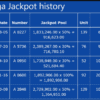Amid a recent surge in coronavirus cases, Macau casinos are hardly open, and some are being used as quarantine zones. That’s prompting one ratings agency to issue a bleak 2022 gross gaming revenue (GGR) forecast for the special administrative region (SAR).
The Cotai Strip in Macau. S&P has a bleak 2022 revenue forecast for casino operators there. (Image: Reddit)
In a new report, S&P Global Ratings says the best case scenario for Macau’s GGR this year is $1.08 billion, or just 20% to 30% of 2019 levels.
Putting that figure into context, it’s roughly an average month of gaming revenue in Nevada. With that dour outlook, S&P also places the credit ratings of Las Vegas Sands (NYSE:LVS), Melco Resorts & Entertainment (NASDAQ:MLCO), and Wynn Resorts (NASDAQ:WYNN) on credit watch negative. That means those operators are vulnerable to potential downgrades to their corporate credit grades.
China’s response to outbreaks of the COVID-19 Omicron variant in major cities and in Macau and its strict control measures has led to increased travel restrictions, limited visitation to Macau, and more depressed levels of GGR than we previously forecast,” says S&P in the note.
In addition to trimming its 2022 GGR estimate, the research firm pares its 2023 outlook. S&P now expects the casino center’s revenue tally next year to come in at 50% to 70% of 2019 levels, down from a prior projection of 80%.
For Macau Operators, Uncertainty Abound
If there’s one thing investors don’t like, it’s uncertainty, and there’s plenty of that to go around in Macau at the moment.
“In particular, the atypically wide range for the revised forecast in mass GGR recovery in 2023 reflects significant uncertainty concerning the duration of China’s zero-tolerance policy regarding COVID-19,” adds S&P. “Macau’s monthly GGR in June 2022 fell to the lowest level since September 2020, amid the worst COVID-19 outbreak in Macau (in terms of number of reported cases) since the beginning of the pandemic.”
Concessionaries’ credit grades are reflecting stress and uncertainty. For example, LVS, the parent of Sands China, was recently stripped of its investment-grade mark by Fitch Ratings. Likewise, Moody’s Investors lowered its rating on MGM Resorts International (NYSE:MGM), which owns 56% of MGM China.
Among US companies that don’t produce semiconductors, LVS and Wynn are among the most dependent on China (Macau) for revenue. With the casino hub essentially a ghost town for the time being, Sands is increasingly dependent on Marina Bay Sands in Singapore, while Wynn needs to wring more upside out of its US venues in Boston and Las Vegas.
Cash Concerns for Macau Operators
Potential credit downgrades at the hands of a new spate of coronavirus cases come as Macau concessionaires are already dealing with an array of financial issues.
Those include high cash burn rates, mounting debt, and what some analysts view as limited financing avenues. Regarding access to capital, some market observers believe US-based parents may need to funnel cash to Macau units, as Wynn Resorts (NASDAQ:WYNN) recently did, to support those operations.
“A slower recovery in Macau’s mass GGR will result in greater cash burn and higher leverage at the end of 2022, placing greater importance on an uncertain recovery in 2023 and increasing the likelihood that leverage may not improve below our downgrade threshold before 2024,” according to S&P.
The post S&P Forecasts Dismal 2022 GGR Tally in Macau, Could Cut Credit Ratings on Three Operators appeared first on Casino.org.









